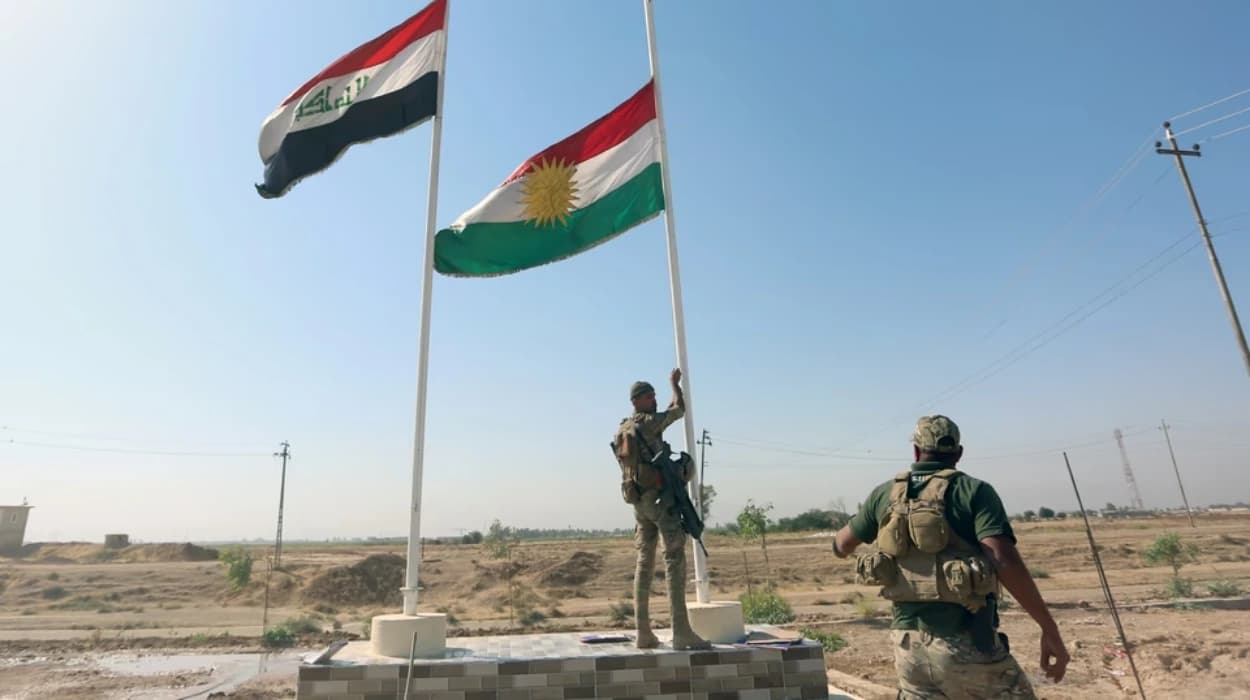Iraq will retain a contingent of US military advisers even
as American forces shift focus and pivot troops towards the Kurdistan region,
confirmed by Iraqi and US officials. This adjustment reflects evolving
strategic priorities amid ongoing regional security challenges.
US Military Presence to Adjust but Not Withdraw Completely
As reported by Mustafa Salim of Al-Monitor, Iraq has
announced its decision to keep a select number of US military advisers in the
country despite a strategic pivot of US troops towards the autonomous Kurdistan
region. This redeployment aims to respond more effectively to threats in
northern Iraq while maintaining critical military cooperation elsewhere in the
country. Iraqi officials stressed that this presence would not equate to a
full-scale pullout but rather a reorientation of foreign military assets
aligned with Baghdad’s security needs and sovereignty concerns.
Strategic Importance of Kurdistan Region
The Kurdistan region, semi-autonomous in northern Iraq, is
regarded as a stable area and a strategic vantage point for US military
operations in the broader Middle Eastern theatre. This region’s relative calm
compared to other parts of Iraq offers a base from which to respond swiftly to
insurgent activities, particularly from groups linked to ISIS or other militant
factions. As highlighted by Mustafa Salim, the troop pivot reflects a policy
adjustment rather than a reduction in US engagement with Iraq’s security
apparatus.
Responses from Iraqi and American Officials
In a statement covered by Al-Monitor, Iraqi Defence Ministry
representatives clarified that while some US advisers will relocate to
Kurdistan, the broader security partnership will remain robust across Iraq. A senior
US military official cited in the same report confirmed ongoing cooperation
with Iraqi forces and adherence to agreements aimed at combating terrorism and
promoting stability in the region.
Continued Military Collaboration and Security Commitments
The presence of US military advisers remains crucial for
training and supporting Iraqi security forces, especially as threats persist
from residual insurgent groups. The US commitment underscores a broader
counterterrorism strategy that requires continued collaboration with Iraqi
military and intelligence services. This partnership is seen as vital for
boosting Iraq’s internal security and countering regional destabilising
influences.
Context of Regional Security Dynamics
The repositioning of US forces coincides with intensified
security challenges in Iraq and its neighboring areas. The Kurdistan region
acts as a frontline buffer against cross-border threats emanating from Syria
and Turkey, besides internal insurgencies. According to Al-Monitor’s detailed reporting,
this realignment aligns with broader US military strategies in the Middle East,
adapting to evolving geopolitical conditions without significant troop
withdrawals.
Iraq’s Sovereignty and Control Over Foreign Troops
Iraqi officials have been explicit in reaffirming that any
foreign military presence must respect the country’s sovereignty. The partial
pivot to Kurdistan does not imply diminishing Iraq’s control over its territory
or security policies. Instead, it shows Baghdad’s intent to fine-tune international
military cooperation in a manner that supports its national interests and
regional stability.
Iraq and the United States have agreed on a nuanced military strategy whereby US advisers remain in Iraq despite shifting the concentration of troops towards Kurdistan. This move balances the need for effective regional security responses with respect for Iraqi sovereignty and ongoing collaboration in counterterrorism efforts, reflecting a pragmatic approach to the complex security landscape of the region.
